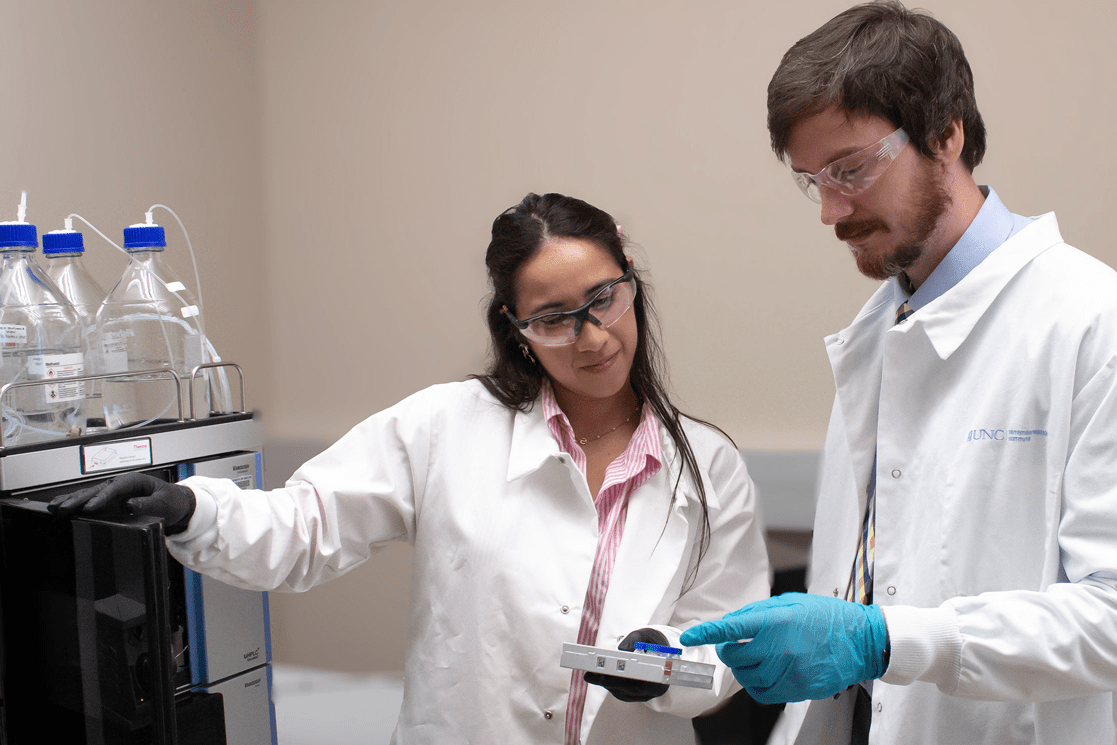Rewriting Cancer’s Energy Story with a Natural Compound

Blake Rushing, PhD, is an Assistant Professor at the University of North Carolina at Chapel Hill’s Nutrition Research Institute (NRI), where his lab applies multi-omics approaches to investigate the metabolic mechanisms underlying cancer and other chronic, age-related diseases. His research leverages analytical chemistry techniques such as liquid chromatography-mass spectrometry to study how nutrient metabolism can inform disease progression, therapy resistance mechanisms, and biomarker development.
The Challenge
Breast cancer remains a leading global health issue, with some subtypes, like triple-negative breast cancer, having particularly poor prognoses due to limited treatment options. Although resveratrol, a naturally occurring compound found in foods like grapes and berries, has shown promising anti-cancer properties, the mechanisms behind its effects remain unclear.
The Discovery
The researchers studied how resveratrol affects the chemistry of breast cancer cells. Using a broad, “big-picture” testing method called untargeted metabolomics (which looks at many different molecules in a cell at once), they found that resveratrol changed the levels of certain molecules called acylcarnitines. These molecules help move fats into the cell’s “power plants,” the mitochondria, so the fats can be turned into energy. At higher doses, resveratrol greatly increased acylcarnitine levels, while at lower doses, it reduced them. This shows that resveratrol can shift how cancer cells process energy, and that the effects depend on the amount used.
“Our findings show a completely novel function of resveratrol that help us understand how it may target cancer cells by altering how they generate energy. By uncovering these shifts in fat metabolism we’re identifying new ways to think about nutrition’s role in cancer research.”
Blake Rushing, PhD
Assistant Professor of Nutrition
Why It Matters
Acylcarnitines are central to mitochondrial metabolism, helping to transport fatty acids for energy production. These metabolites are increasingly recognized as markers—and possible drivers—of altered cancer cell metabolism. The study indicates that resveratrol reprograms cancer cell energy pathways in a dose-sensitive way, revealing potential metabolic vulnerabilities. This opens the door for precision nutrition strategies or adjuvant interventions that modulate mitochondrial metabolism to support cancer prevention or treatment. Identifying the right dose of resveratrol, or combining it with other interventions that affect fatty acid metabolism, could maximize its therapeutic potential.
